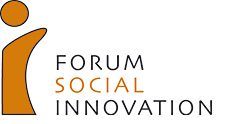
Key Areas
- Sustainability
- The FSI has close links with primary production, particularly in agriculture and forestry, where sustainability is a well-established principle. In many other areas, we know that this experience gained over the centuries can and must provide guiding principles for a viable way of living and working in the future.
- Social Standards
- Sustainable development can only be achieved by people who have been suitably empowered. In addition to good training, workers also need to have appropriate social provisions. Social difficulties and fears are one of the causes of Euro-scepticism. We have seen that minimum social standards are essential, so that people can live and work without worrying about their future; this will make it easier for them to support the basic principle of a sustainable Europe.
- Dialogue
- People need to be convinced that a united Europe is the right approach. This requires effective dialogue based on partnership, enabling individuals to express their opinions, concerns and fears. European participation models have proven to provide a good basis for dialogue. The integration of cultures and the pooling of different approaches lead to the greater good.
- Development
- The European Union is changing rapidly. New economic, environmental and social challenges have to be faced while integrating new partners. People from poorer areas in the world do not see another option to secure their income than living and working in Europe. Only a strong and united Europe will able to deal with the resulting difficulties. Experience has taught us that it is important to identify and promote good social, environmental and economic examples so that they can feed into policies.
